Third date with the online free-to-watch shorts taken fom Concorto Film Festival’s last editions. This one is dedidcated to those who are freaking out and feel trapped, to those who are perfectly happy and cozy at home, to those who are suffering ad to those who, with resilience, are not giving up. Cinema will save us.
iamo al terzo appuntamento con i Corti in Quarantena, i migliori cortometraggi in chiaro online presi dalle più recenti edizioni di Concorto Film Festival. Dedicato a chi sta strippando, a chi invece in casa al calduccio ci sta stroppo bene, a chi sta soffrendo e a chi, resiliente, non si arrende. Buona visione!
Marguerite – Marianne Farley
Seen by Carlotta Magistris
Marguerite, a 2017 short movie shot by the Canadian Marianne Farley, is a delicate movie about a generational confront made of love and care between an ill old woman and her daily nurse, Rachel. With a slow rhythm and expressive close-ups to emphasise the differences and the connections between the two women, through the homosexual love story of Rachel the fragile main character Marguerite mentally recounts her own love story long forgotten, pulling out an old wound that now seems to leave the shadow of a smile poised between nostalgy and a slight bitterness.
Babies – Yuval Shapira
Seen by Margherita Fontana
A mother is woken by her baby’s cries, but she has nothing to feed him. The woman, as she stands, barefoot and still wearing her nightgown, leaves him alone to go out. The gesture might look like the consequence of a desperate decision but it looks more like the inevitable result of an uncontrollable chain of events. It’s an invisible force, an ineludible force which drags her away from her home towards a series of surreal nocturnal encounters. The human and architectural landscape depicted in the short film features geometrical spaces populated by ghosts, sick people, refugees and soldiers. The great nocturnal picture by Ilya Marcus brings the audience in front of this strange array of people out of their context.
Sometimes, I think about dying – Stefanie Abel Horowitz
Seen by Carlotta Magistris
With its cold colours, Sometimes, I think about dying represents an effective postcard of depression, the silent story of a lonely young lady and of an emptiness difficult to express and to overcome. Complicated in itself, insurmountable in front of those who try to overcome this ice wall, or that at least try to melt it but disappointing the expectations, conversations and car journeys along with a blanket of fog, deadly thoughts that never leave and no mask to fake an apparent compliance. But then, whether by choice or by necessity, some ice melts and finally the starting – or the arrival –point appears.
Matria – Álvaro Gago
Seen by Margherita Fontana
The short film by Alvaro Gago lands at Concorto after having collected several awards in many festivals around the world (among these, the Grand Jury Prize at Sundance 2018). In Matria we witness the consuming routine of Ramona: married to an off-putting and rough man, the woman divides herself between house care and work in the factory. Fooled and insulted by everyone, she finds a fragile peace in the love for her daughter and granddaughter. Matria (motherland) is a neologism used – among others – by Virginia Woolf and, later on, by the feminist movement as an alternative to the “fatherland”: it refers to the community of people made possible by women, by their being mothers, sisters, daughters, by their acceptance, sacrifice and care. The homonymous short film by Gago describes through a harsh narration this dramatic condition and the human force of such a powerful sacrifice.
Hotaru – William Laboury
Seen by Yorgos Kostianis
Martha has a gift. Her brain is susceptible to hypermnesia, namely an abnormal increase in the mnemonic capacity of recalling memories. Thanks to this ineffable gift, she is chosen for an ambitious experiment in outer space. For the purposes of said experiment, she is put in an eternal, medically induced coma. Martha travels forevermore in the lucid dreams of her infinite memory. The faded image of a boy, however, remains indelible in her mind.
Inspired by Chris Marker’s radical cinematic style and Alain Resnais poetic essays on the vagaries of memory, Laboury edited vast amounts of found footage into a spellbinding virtual journey of mesmerising beauty and eerie allure that completely captivates the audience.
United Interest – Tim Weinmann
Seen by Silvia Alberti
A black and white XIX century city is the background of a sad parade that puts on screen the many obscure events of XX century America. Uncle Sam my arse: black Friday, second world war, economic boom, ku klux klan, hope-speculations, real estate crisis, the third industrial revolution. Tim Weinmann: the most irritating thing is that you’re absolutely right.
Roadtrip – Xaver Xylophon
Seen by Sofia Brugali
– So? What Are you waiting for?
– For something symphonic to happen…
– You can wait forever then… Normally you have to take matters into your own hands!
Mama Berlin, is a placid and charming wizard who bewitches her offspring with her spell: a perpetual and artificial murmur. Julius is one of her unuware victims, stucked in the stillness of the concrete. But his mind is awake, constantly dragged by a strong stream of thoughts that deprives him of sleep.
How to defeat insomnia and reach the world of dreams? How to stop letting life passing by and “finally start leaving”?
After going through the dangerous swamp of pretexts, where the hero learns that seemingly unfavorable situations can turn into opportunities, Julius’ quest for his lost sleep will end with a sweet lullaby singed by the rain. With a little help from his friends and a lot of willpower.
Pineapple Calamari – Kasia Nalewajka
Seen by Sofia Brugali
Pineapple Calamari is a short claymation, whose opposite features confuse both its spectators and its characters. Indeed, talelike situations and real emotions, comedy and tragedy, craziness and habits blend into a discordant harmony. Because of this antithetical power, the loss of balance becomes – literally and metaphorically – the primum movens of the plot, which evolves from a simple narration to a cause for reflection.
The horse Pineapple Calamari lives a happy routine with his two breeders and a crabby chicken, but their everyday life is twisted when one of the two women dies. Habits become a prison that anchor the livings to the past, while egoistically diminishing the value of present; normality turns out to be unknown.
Kasia Nalewajka manages to explore the human psyche and lightly shows how difficult it is to cope with absence, described in the movie in its permanent form: death.

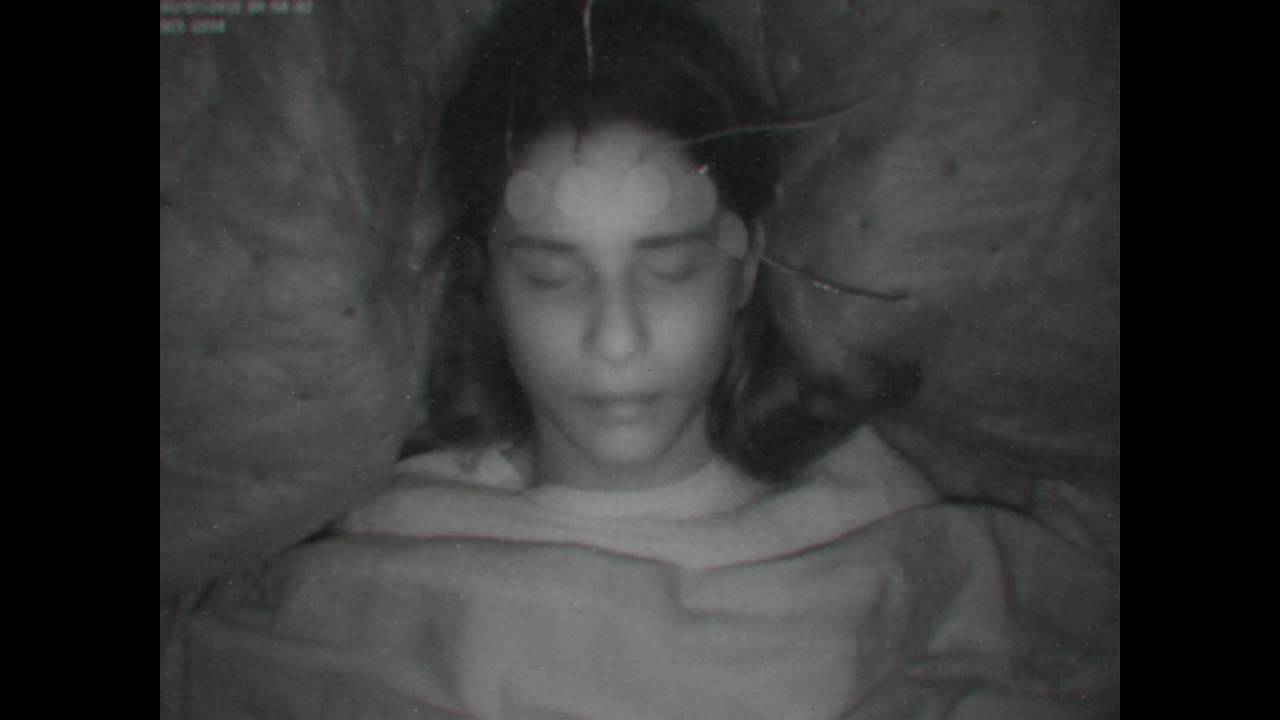
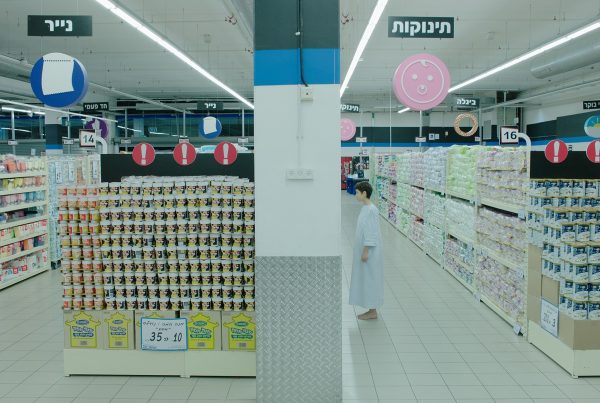
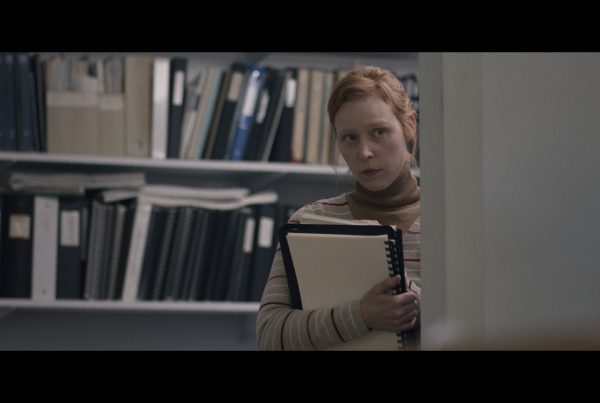
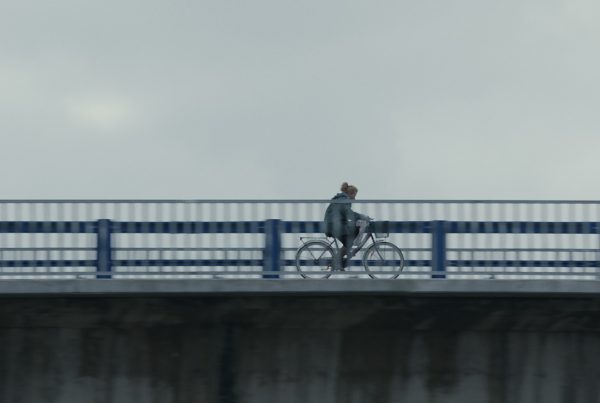
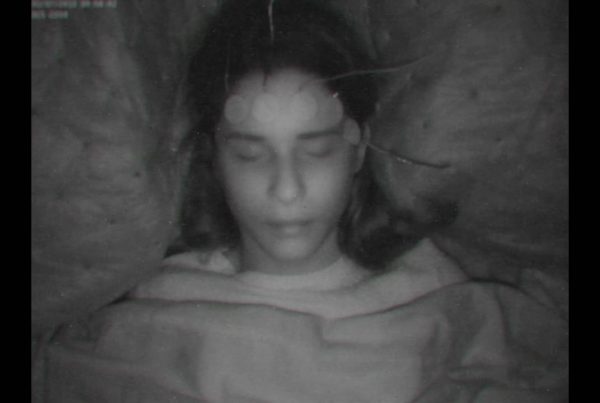
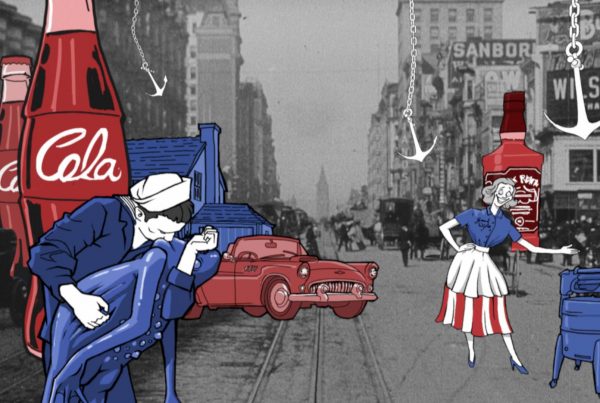
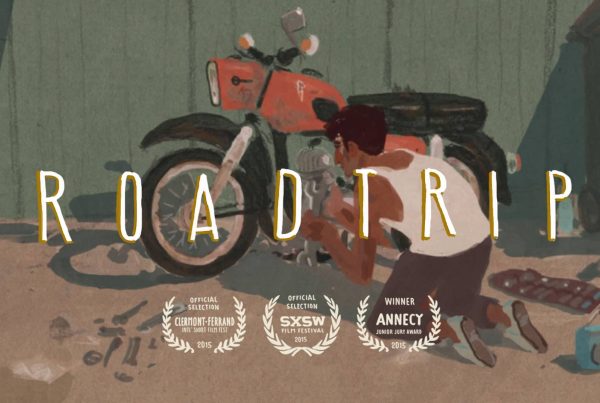
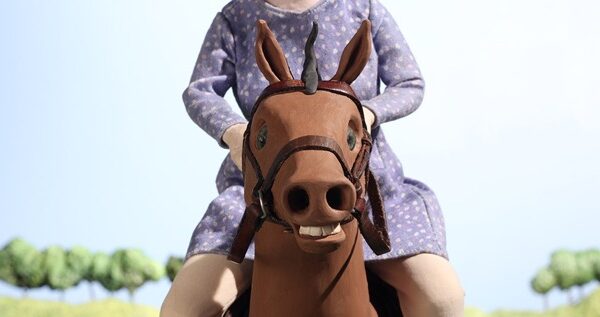

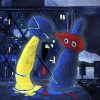




Commenti recenti